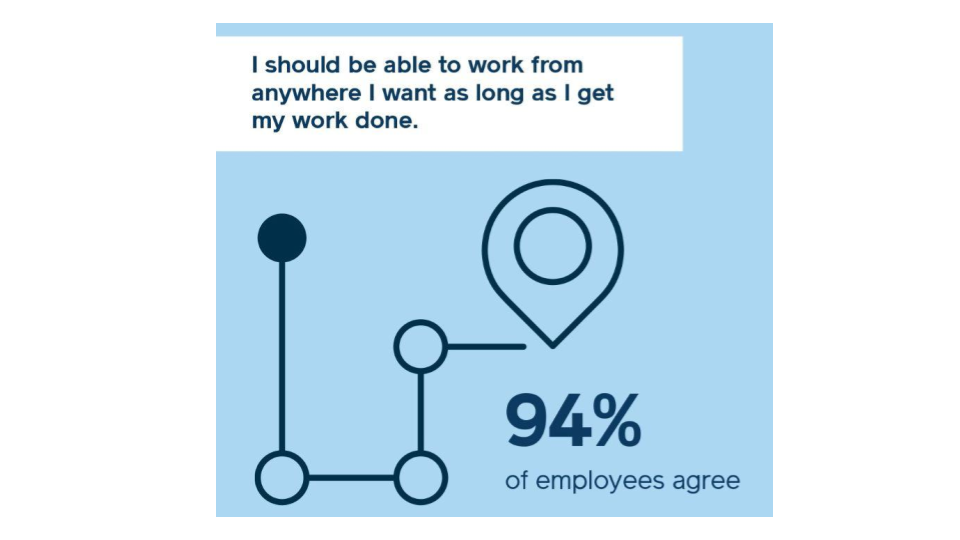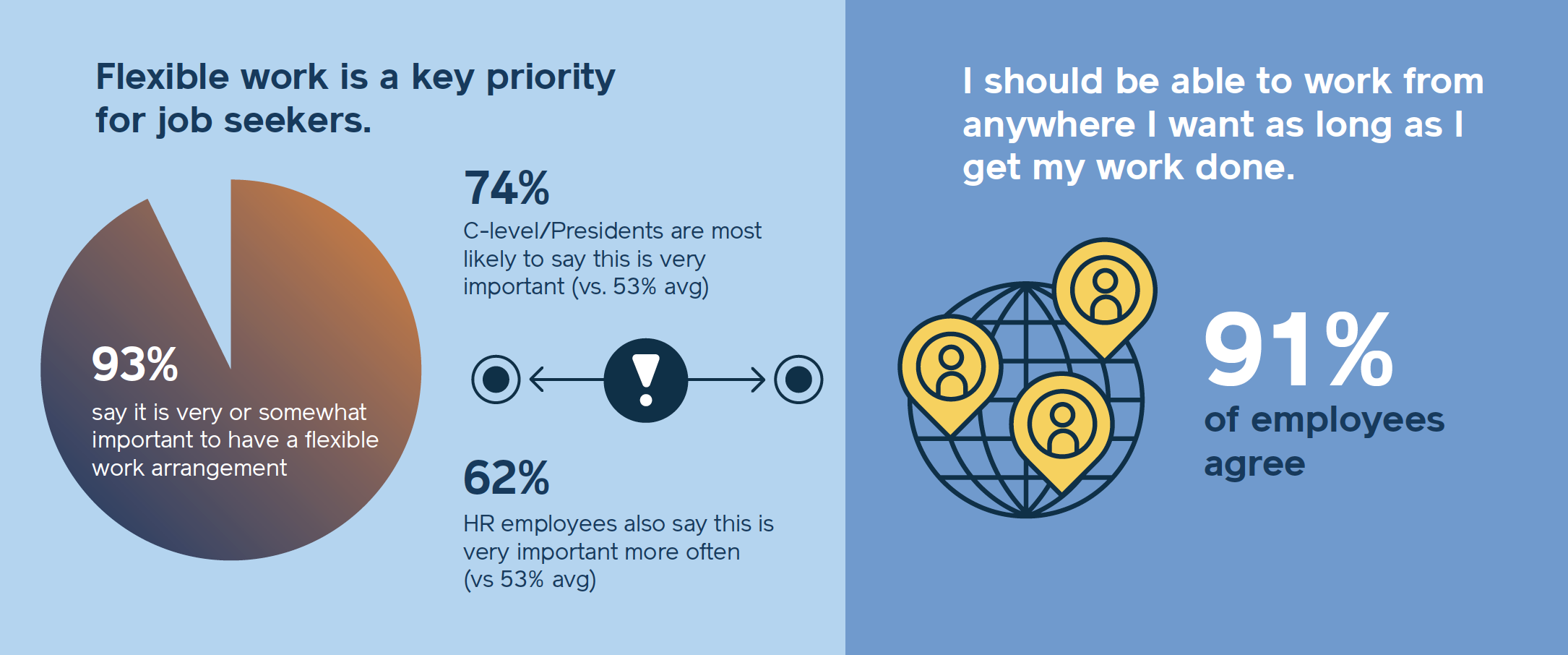
Adapt To Work Everywhere: What The Great Resignation Can Teach Us About Employee Priorities
In a recent Adapt to Work Everywhere webinar we teamed up with HR leaders for a data-driven dive into the results of our annual Adapt Survey. We explored evolving employee priorities and attitudes towards remote work, what drives an exceptional employee experience, and the value of mobility. In this blog post we dive into some of the key discussion points.
Employees want flexible work
Our Adapt survey shows 94% of employees feel they should be able to work wherever they want as long as they get their work done. And, 41% of employees reported flexibility to work from home is or was a reason to change jobs.
An overwhelming number of employees are putting a high value on trust. Trust to get their work done wherever and whenever they want. The pandemic has demonstrated people can be productive outside the office. As companies move toward flexible work models HR should be taking steps to build confidence and empower their employees to work from where they can do their best work.
Candidates want to know about your remote strategy
At Topia we are seeing a shift in candidates' sentiments surrounding our remote work policy. Pre-pandemic, the most common question we would hear was, "Tell me about the culture at Topia," and now we are hearing "What’s your remote work policy?”
People have found themselves thriving working in a remote environment and they don't want to be required to return to the office. In fact, a recent statistic from a CNBC survey shows remote and flexible jobs are getting 7x the number of applicants than office roles. A full work-in-office model could send your talent looking for new opportunities that will allow them to continue working remotely.
You can maintain company culture in a remote work world
Over the past several years, it has become a significant challenge for employees to feel engrained in company culture when they rarely, if ever, see each other in person. Organizations would be well advised to define company culture with intention. Try avoiding the term policy and instead create frameworks, best practices, and norms. And most importantly, share how to work at the company vs. simply providing do’s and don’ts.
Your workforce must understand the how and why behind reporting
90% of HR employees are confident that, when working out of state/country, employees are self-reporting 100% of the time. The reality? 33% of workers are actually doing so.
Relying on self-reporting models will always leave gaps because employees might not feel the urgency or see the need to report where they are because they don’t understand the why behind it. Location monitoring is a key player that can enable companies to take advantage of a truly distributed workforce without the worrying of breaching tax, immigration, social security, or other compliance regulations.
Reasons why employees are not reporting where they work from:
- Reporting systems and processes are not user-friendly- HR systems are not always widely user-friendly or part of employees' daily experience, this can lead to cumbersome processes and createan element of "I don't know what to do so I'm just not going to do it." Instead, they wait reactively.
- Employees don't understand why self-reporting matters- Not everyone is aware of the of the many risk factors associated with their working location -whether it’s permanent establishment, nexus, social security, immigration,or payroll withholding. It’s critical to educate the workforce on these risks involved,so employees understand why it matters.
- Employees fear personal implications of self-reporting. Many employees fail to self-report due to fear of facing negative implications. Instead, they say nothing at all. HR must keep in mind that people are trying to figure out their company's geo differential policy and the benefits strategy.
Access our Adapt To Work Everywhere webinar recording for more insights on what the great resignation can teach us about employee priorities.


